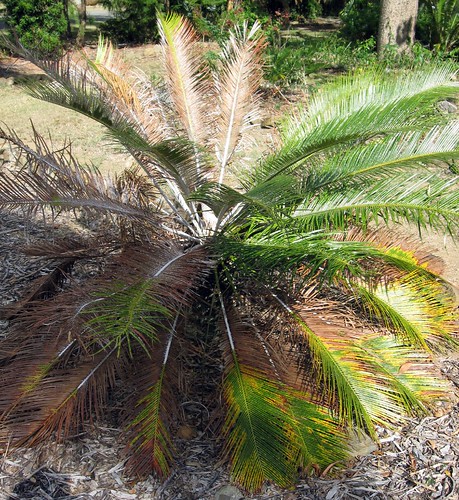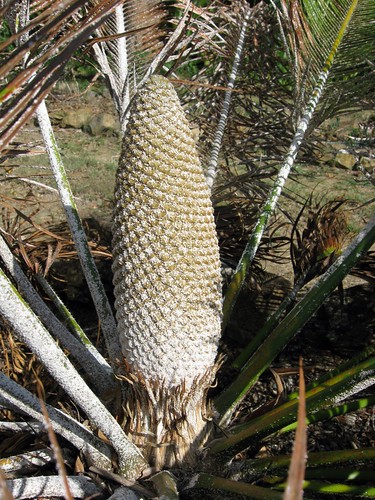In 1992 a botanic gardens expedition returned to the USA carrying with them an unsuspected cargo, a cargo whose name would soon be uttered with horror across Florida……Sadly I'm not referring to a hackneyed rip-off of the book Relic but to actual events. The creature they brought back was the Asian cycad scale, Aulacaspis yasumatsui. This horrible little beastie has destroyed thousands of pounds worth of cycads – principally those in the genus Cycas (mainly the common C. revoluta). The scales spread quickly to cover the plants in a silvery bloom. Each insect will suck tiny amounts of juice out of the plant causing it to lose strength and ultimately to collapse – this is a bad thing. The original infestation rapidly spread as flightless scale insects were blown to new Cycas and or shipped to new gardens by unaware nurseries. Its also worth noting that the original botanic garden infestation may not be the source of all cycad scale in the States – illegally imported cycads probably had something to do with the problem too. In an ecological sense the problem is relatively minor – it is restricted to certain plants in a single genus none of which are native to the area in which it is a problem, for cycad growers though it is a disaster.
The plant above is an infected Cycas (one of the only remaining Cycas I should note) in the Botanic Gardens of St. Croix. You can clearly see the bloom of insects as well as the weakened state of the plant. Can anything be done if I see this horror on my plants you may well ask. Well yes. Combinations of horticultural oil, systemic insecticides and other treatments have been shown to work: for more details see here. In addition former Cycad Society president Tom Broome has found that using coffee grounds can protect against and prevent scale infestations for more on which see the detailed and fascinating article here.
As with many plants under immense stress this plant has responded by attempting to fulfil its natural imperative and fired out a massive (but also scale-covered) male cone.
This is Cycas wadei by the way, a Cycas sp. endemic to Palawan Island in the Philippines. As with so many other species this one is endangered in the wild; one estimate I saw suggested the wild population was down to 50 mature plants. In spite of this there are a fair few specimens "in captivity" so, assuming the others don't end up like this one, its future is stable if not exactly bright.


2 comments:
Our native coonties seem to be immune from scale infestations, but the sago palm cycads battle them constantly.
I spray occasionally if it gets bad, and I trim off loaded fronds and burn them.
I heard there is a disease that is affecting sagos now.
this product (in the link) is always going to be more affective than other oil based products at controlling scale.
Post a Comment